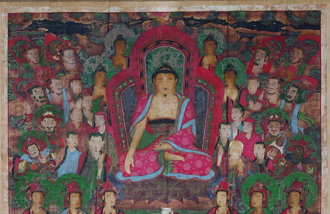Protests vs. breaches of nat`l security
Protests vs. breaches of nat`l security
Posted August. 15, 2011 07:23,
More than 100 people affiliated with the militant (South) Korean Confederation of Trade Unions staged a protest in front of National Intelligence Service headquarters in Seouls Seocho district Sunday against the spy agencys investigation into Wangjaesan, an anti-state espionage organization controlled by North Korea. Certain members of the progressive Democratic Labor Party also joined the protest, blasting the probe as politically motivated" to suppress the labor confederation and the Democratic Labor Party. The protesters chanted things like ideological offensive and suppression of progressive forces through national security issues, slogans reminiscent of those appearing under past authoritarian governments.
A figure affiliated with the main opposition Democratic Party who once served as an aide to a former National Assembly Speaker was arrested. The heads of municipal and provincial governments affiliated with the labor party and several party members are also being investigated for their involvement in the anti-state organization. A party that has members implicated in espionage should cooperate with the investigation in good faith if it wants to dispel public distrust. How on earth can the government suppress progressive forces with national security issues and cook up an anti-state organization in these times of democracy? Experts on North Korea said Cabinet Department No. 225, which is directly related to Kim Jong Il Politics and Military University, ordered Wangjaesan to conduct espionage activities in South Korea. The university trains spies as an organization under the Comprehensive Intelligence Bureau at the Norths powerful National Defense Commission. The bureau is known to have been behind the Norths attacks on the South Korean naval vessel Cheonan and Yeonpyeong Island last year and cyber attack on the National Agricultural Cooperative Federation, or Nonghyup Bank, this year.
South Korean Prosecutor General Han Sang-dae said in his inauguration speech on Friday, If we have pro-North Korea forces, they should be duly punished and gotten rid of. On this comment, the Democratic Party and the labor party said, His intent is to suppress opposition parties on grounds of ideological differences in the run-up to next years parliamentary elections. A thorough response to pro-North Korea forces is a basic duty of South Korean prosecutors. What is problematic is dereliction of this duty by prosecutors under previous left-leaning governments in Seoul. Letting those who deny the Republic of Korea have their way is tantamount to putting the people in danger.
According to data released by Seoul police, the annual average number of South Koreans who violate the National Security Law rose 25 percent from 69.6 under the Roh Moo-hyun administration (from 2003 to 2007) to 87 under the Lee Myung-bak government (from 2008 to last year). An operator of the Internet community Cyber National Defense Headquarters who was indicted for violating the security law cried Hurrah! Dear Leader Kim Jong Il at his trial on June 30. Recent cyber security breaches are also known to have been traced to North Korean hackers. Handing over secret information to the North is a severe crime that threatens national security. Probes into espionage cases that shake the survival of the Republic of Korea must be thoroughly carried out. Protests against such investigations should also be sternly dealt with.







